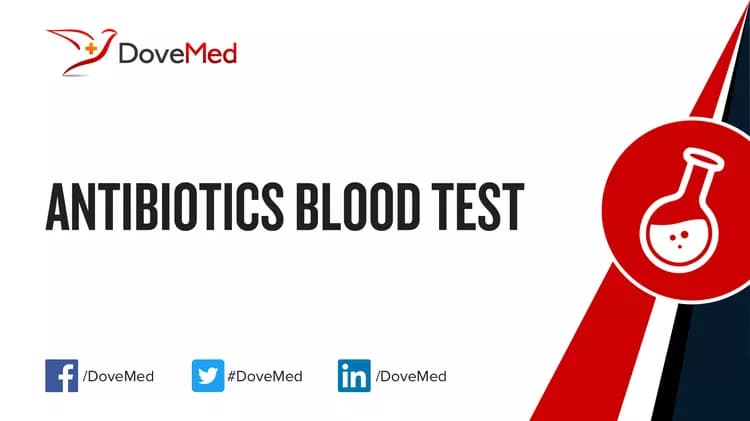What are other Names for this Test? (Equivalent Terms)
- Antibacterials Blood Test
- Antibiotic Medications Blood Test
- Antivirals Blood Test
What is the Antibiotics Blood Test? (Background Information)
- Antibiotics are substances that kill or prevent the growth of microorganisms, such as bacteria (antibacterials), fungi (antifungals), viruses (antivirals), or protists and parasites (antiparasitics)
- Antibiotics that kill their targets are referred to as microbicidals. They often prevent the microorganism from constructing its cell wall. The cell wall is important for enabling the microbe to sense its environment and protecting it from environmental hazards, such as changes in pressure
- Common antimicrobials include glycopeptides (vancomycin) and beta-lactams (penicillin and ampicillin)
- Antibiotics that prevent the growth of bacteria without immediately killing them are called bacteriostatics. They often interfere with the microorganism’s ability to make proteins or replicate its genetic material
- Common bacteriostatics include tetracyclines (doxycycline), aminoglycosides (gentamicin), and fluoroquinolones (ciprofloxacin or Cipro™)
- Unlike bacteriostatics, antimicrobials rapidly kill the microbes. However, this may result in microbial components flooding the body and causing a massive immune response, which can be fatal
- Bacteriostatics generally avoid this complication. However, microbes that are especially resilient may simply wait out the bacteriostatic. When therapy is stopped, protein production or genetic replication once again resumes and the bacteria may again spread and cause disease
- The Antibiotics Blood Test helps determine the level of antibiotics in blood. It is used to ensure that antibiotic levels stay within a safe yet effective range
What are the Clinical Indications for performing the Antibiotics Blood Test?
The clinical indications for performing the Antibiotics Blood Test include monitoring antibiotic therapy.
How is the Specimen Collected for the Antibiotics Blood Test?
Following is the specimen collection process for Antibiotics Blood Test:
Sample required: Blood
Process of obtaining blood sample in adults:
- A band is wrapped around the arm, 3-4 inches above the collection site (superficial vein that lies within the elbow pit)
- The site is cleaned with 70% alcohol in an outward spiral, away from the zone of needle insertion
- The needle cap is removed and is held in line with the vein, pulling the skin tight
- With a small and quick thrust, the vein is penetrated using the needle
- The required amount of blood sample is collected by pulling the plunger of the syringe out slowly
- The wrap band is removed, gauze is placed on the collection site, and the needle is removed
- The blood is immediately transferred into the blood container, which has the appropriate preservative/clot activator/anti-coagulant
- The syringe and the needle are disposed into the appropriate “sharp container” for safe and hygienic disposal
Preparation required: No special preparation is needed prior to the test.
What is the Significance of the Antibiotics Blood Test Result?
The significance of the Antibiotics Blood Test result is explained:
- A high test value may indicate antibiotics toxicity, which is marked by:
- Lower back pain
- Discolored urine
- Frequent urination
- Painful urination
- Fatigue
- Nausea
- Vomiting
- Diarrhea
- Altered mental status
- Abnormal heart rate
- Abnormal breathing
- A low test value may indicate that more antibiotic is necessary to achieve a therapeutic dose
The laboratory test results are NOT to be interpreted as results of a "stand-alone" test. The test results have to be interpreted after correlating with suitable clinical findings and additional supplemental tests/information. Your healthcare providers will explain the meaning of your tests results, based on the overall clinical scenario.
Additional and Relevant Useful Information:
- Antibiotics often disrupt the natural microbial balance in the gastrointestinal and vaginal tract. This may lead to overgrowth of certain populations, especially C. difficile (intestine) and C. albicans (vagina), and cause infection
- Microorganisms may develop resistance to antibiotics. This has decreased the effectiveness of many antibiotics, such as penicillin, and continues to be a growing problem
Certain medications that you may be currently taking may influence the outcome of the test. Hence, it is important to inform your healthcare provider of the complete list of medications (including any herbal supplements) you are currently taking. This will help the healthcare provider interpret your test results more accurately and avoid unnecessary chances of a misdiagnosis.
https://www.dovemed.com/common-procedures/procedures-laboratory/susceptibility-testing/
https://www.dovemed.com/common-procedures/procedures-laboratory/blood-culture/
https://www.dovemed.com/diseases-conditions/clostridium-difficile-associated-diarrhea-cdad/
http://www.dovemed.com/diseases-conditions/methicillin-resistant-staph-aureusinfection/
Please visit our Laboratory Procedures Center for more physician-approved health information:
http://www.dovemed.com/common-procedures/procedures-laboratory/
Related Articles
Test Your Knowledge
Asked by users
Related Centers
Related Specialties
Related Physicians
Related Procedures
Related Resources
Join DoveHubs
and connect with fellow professionals


0 Comments
Please log in to post a comment.